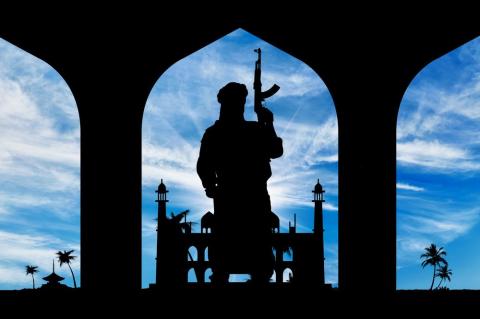In his first two budgets, President Trump proposed steep cuts in foreign aid, but Congress didn't approve them and the final bills kept the money flowing overseas.
So last month Trump instructed the State Department to freeze $3 billion in funds for projects in Syria, Gaza, and the West Bank, leading to broad push back from Congress, special interests, and lobbying groups like the One Campaign (whose goal is to allocate one percent of ever federal budget to foreign aid).
In the face of increasing pressure, and with the questionable legality of the White House exercising so much discretion with funds that had been clearly earmarked by Congress, the administration caved and announced it would not be issuing its rescission package to rescind the money.
But foreign aid to the Middle East has a remarkable history of ending up in the hands of America's enemies, due in part to short-sighted and reckless (the enemy of my enemy is my friend) policy making, and also to massive dereliction of accountability and responsibility that reaches a level perhaps only Washington could muster.
For example, a lot of people don't know this, but in May 2001, just four months before the 9/11 attacks, the State Department announced a grant of $43 million to the Taliban. Overseas friends of the United States have suddenly become enemies so many times that sending money to the rest of the world, especially to the Middle East, is fraught with risk.
Nine years after 9/11, in a shocking display of Washington incompetence, reports began to emerge from government auditors and war analysts that as much as $1 billion in Washington money directed to Afghanistan as part of the post-war reconstruction efforts had actually ended up in the hands of insurgent Taliban forces.
From 1979 - 1989, the CIA poured billions of American tax dollars into Afghanistan to arm and finance the Mujahideen, one side in an Afghan civil war against the pro-Soviet People's Democratic Party of Afghanistan in Operation Cyclone, one of the longest and most expensive covert CIA operations ever.
This money was knowingly funneled by the tens and then hundreds of millions, year after year, into the hands of radical Islamic militants friendly to Pakistan.
These networks would spawn Osama bin Laden, Al Qaeda, many of its affiliates, and the radical Taliban government that harbored them during and after 9/11 -- all armed with American weapons, finances, and military training because of the catastrophic short-sightedness and recklessness of Operation Cyclone.
US officials estimate that from 1985 to 1992, 12,500 Islamic jihadists were trained in bomb-making, sabotage, and urban guerrilla warfare in Afghan camps the CIA helped to set up.
that "e received security training from the CIA itself, according to Middle Eastern analyst Hazhir Teimourian," and ForbesJust days after the 9/11 attacks, in two separate bios of Osama bin Laden, the BBC reportedreported that bin Laden, "not only invested some of his personal financial resources to fund the combat brigades, he also received military and financial assistance from the intelligence services of Saudi Arabia, Pakistan and the United States."
And Khalid Sheikh Mohammed, identified by the 9/11 Commission Report as the "principal architect of the 9/11 attacks," was radicalized and learned terrorist tactics in a Mujahideen training camp in Afghanistan during the 1980s while the region swelled with Washington funding and support for the civil war against the pro-Soviet government.
Foreign aid is often used as a tool of diplomacy and humanitarian efforts led by the United States around the world, but in a post-9/11 world, it seems Washington has shown no propensity to wield this foreign policy tool with a much lighter and more careful touch.
Senator Rand Paul (R-KY) has introduced bills to end foreign aid to countries like Pakistan, Libya, and Egypt, but Washington continues to send billions of taxpayer dollars overseas to countries and groups that often end up posing a threat to America's safety.
Photo Credit: Prazis Images / shutterstock.com
